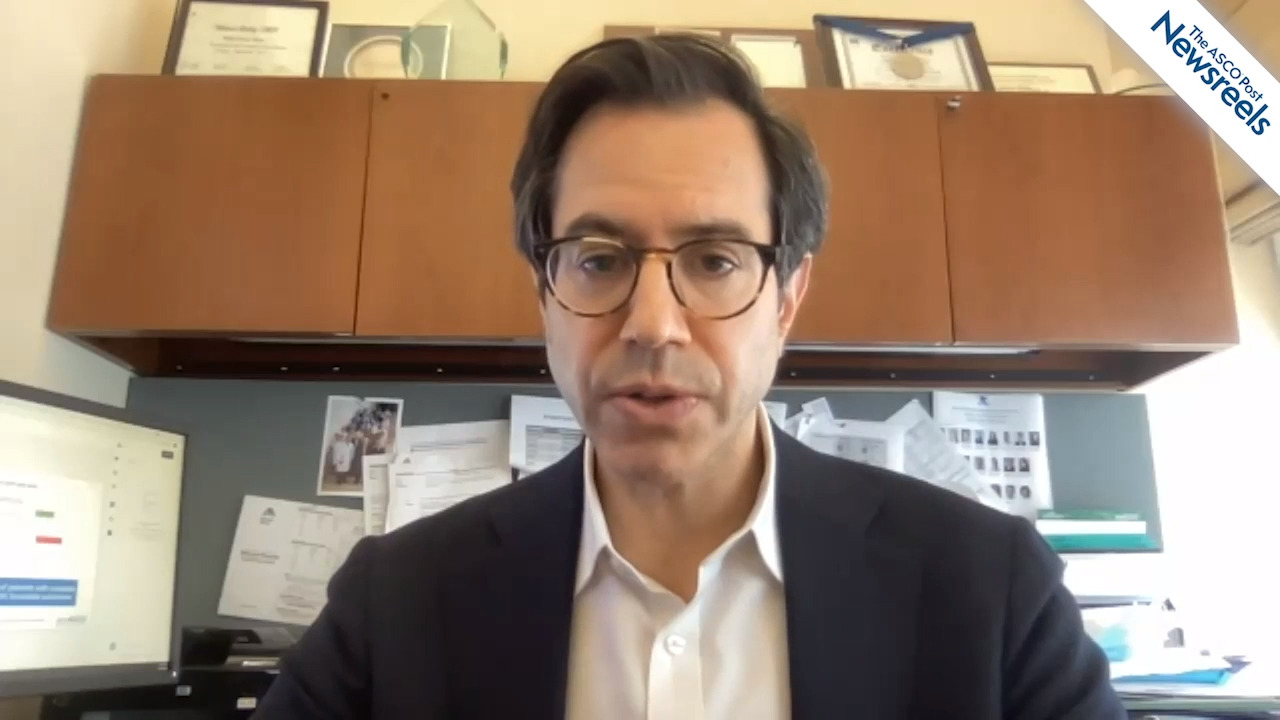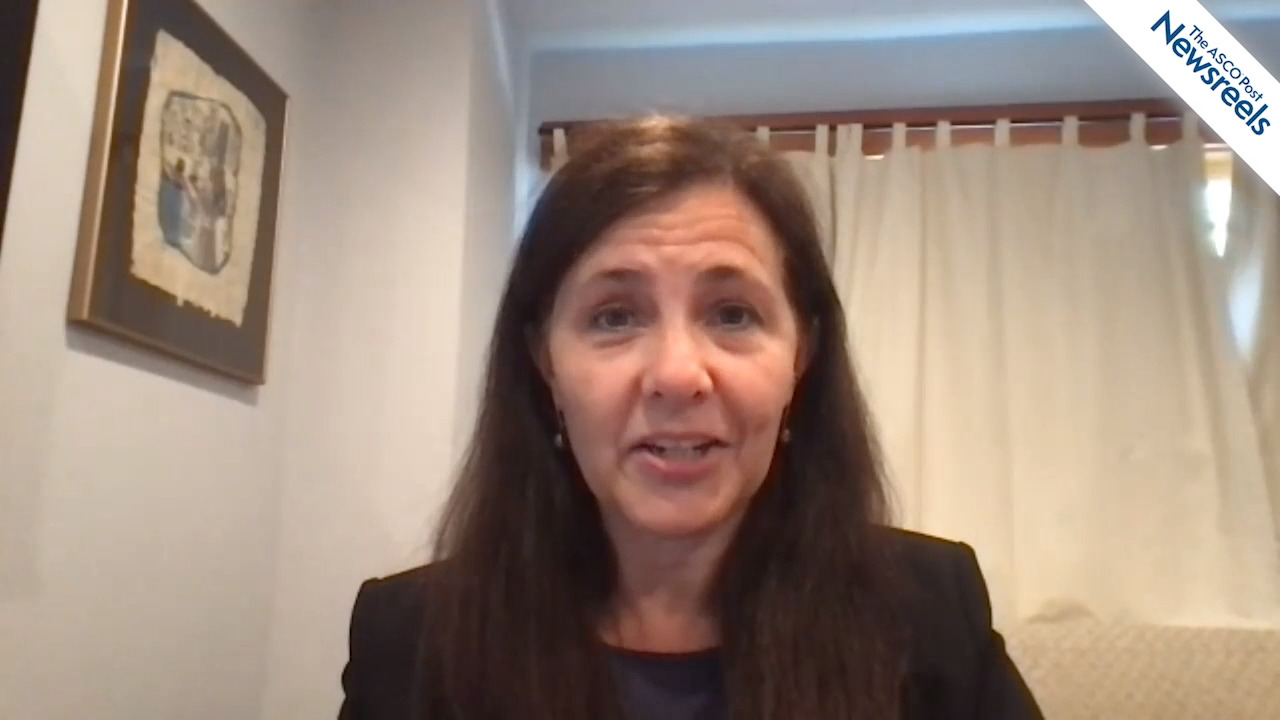Terry P. Mamounas, MD, MPH, on Breast Cancer: Extended Aromatase Inhibitor Therapy
2021 ASCO Annual Meeting
Terry P. Mamounas, MD, MPH, of the University of Florida Health Cancer Center, discusses results from the NRG Oncology/NSABP B-42 study, which examined the Breast Cancer Index and its ability to predict whether extended treatment with letrozole benefits patients with hormone receptor–positive breast cancer (Abstract 501).
The ASCO Post Staff
Matt D. Galsky, MD, of the Tisch Cancer Institute at Icahn School of Medicine at Mount Sinai, discusses results from a phase II trial designed to test gemcitabine and cisplatin plus nivolumab as neoadjuvant therapy in patients with muscle-invasive bladder cancer and to better predict benefit in those who opted out of cystectomy (Abstract 4503).
The ASCO Post Staff
Neeraj Agarwal, MD, of Huntsman Cancer Institute at the University of Utah, discusses phase III data from the SWOG S1216 trial, which evaluated the clinical benefit of using androgen-deprivation therapy with either orteronel (or TAK-700, a CYP17 inhibitor) or bicalutamide in patients with newly diagnosed metastatic hormone-sensitive prostate cancer (Abstract 5001).
The ASCO Post Staff
Heather A. Wakelee, MD, of Stanford University Medical Center, discusses the primary disease-free survival results of IMpower010, a phase III study that compared adjuvant atezolizumab vs best supportive care after adjuvant chemotherapy in patients with early-stage resected non–small cell lung cancer (Abstract 8500).
The ASCO Post Staff
Brian I. Rini, MD, of Vanderbilt University, discusses findings from KEYNOTE-426, the longest follow-up of a checkpoint inhibitor (pembrolizumab) combined with a VEGF/VEGFR inhibitor (axitinib) for first-line clear cell renal cell carcinoma. The trial results continue to support this combination as a standard of care for patients with previously untreated disease (Abstract 4500).
The ASCO Post Staff
Byoung Chul Cho, MD, PhD, of the Yonsei Cancer Center, discusses study results that showed treatment with the EGFR-MET bispecific antibody amivantamab plus the EGFR inhibitor lazertinib yielded responses in 36% of chemotherapy-naive patients with non–small cell lung cancer whose disease progressed on osimertinib. Genetic biomarkers may be able to identify patients most likely to benefit from the combination regimen (Abstract 9006).





